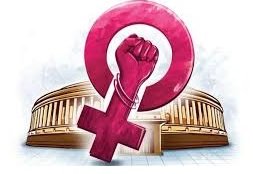Mahila Aarakshan Bill: A Step Towards Women Empowerment and Gender Equality in India
The Mahila Aarakshan Bill, also known as the Women Reservation Bill, is a proposed legislation that aims to provide 33 percent reservation for women in the Lok Sabha and the state legislative assemblies. The bill was first introduced in 1996 by the United Front government, but it faced several hurdles and opposition from various parties and groups. The bill was reintroduced several times by different governments, but it could not be passed by both houses of Parliament. In 2023, the Narendra Modi-led NDA government tabled the bill in the Lok Sabha as the Nari Shakti Vandan Adhiniyam, and it was passed with a heavy majority of 454 votes in favour and only two votes against. The bill is now pending in the Rajya Sabha, where it is expected to face some challenges from parties that demand a sub-quota for women from backward classes and minorities.
Significance of the Bill
The bill is significant for several reasons. First, it seeks to enhance the representation and participation of women in politics and governance, which is currently very low in India. According to the Inter-Parliamentary Union, India ranks 148th out of 193 countries in terms of women’s representation in Parliament, with only 14.4 percent of seats occupied by women. The global average is 25.5 percent. Similarly, women’s representation in state assemblies is also dismal, ranging from 3.1 percent in Nagaland to 23.1 percent in Bihar. The bill aims to increase the number of women MPs to 181 from the current 82, and the number of women MLAs to more than 2000 from the current 740.
Second, the bill seeks to empower women and promote gender equality in society. Women face various forms of discrimination, violence, and oppression in India, such as female foeticide, child marriage, dowry, domestic abuse, rape, sexual harassment, honour killing, trafficking, and the wage gap. The bill hopes to create a conducive environment for women to voice their concerns and demand their rights. It also hopes to inspire more women to enter public life and leadership roles and to challenge the patriarchal norms and stereotypes that limit their potential.
Third, the bill seeks to improve the quality and effectiveness of governance and policymaking in India. Studies have shown that women legislators tend to be more responsive, accountable, honest, and collaborative than their male counterparts. They also tend to focus more on issues related to health, education, welfare, environment, and social justice, which are crucial for human development. The bill expects that by increasing the presence of women in Parliament and assemblies, the policies and laws will be more inclusive, progressive, and beneficial for all sections of society.
Challenges and Criticisms
The bill has also faced some challenges and criticisms from various quarters. Some of the main arguments against the bill are:
- The bill will create a division among women based on caste, religion, region, and class. Some parties have demanded that within the 33 percent reservation for women, there should be a sub-quota for women from backward classes and minorities. They argue that without such a provision, the bill will benefit only upper-caste and urban women at the expense of lower-caste and rural women. However, others have opposed this demand, saying that it will further fragment society along communal lines and undermine the unity and solidarity of women.
- The bill will reduce the merit and competence of legislators. Some critics have argued that by reserving seats for women based on gender alone, the bill will compromise the quality and efficiency of governance. They claim that many women candidates will be nominated by their male relatives or patrons who will influence their decisions and actions. They also claim that many women candidates will lack the necessary experience, education, skills, and vision to perform their duties effectively.
- The bill will disrupt the existing electoral system and political dynamics. Some opponents have contended that by reserving seats for women by rotation every election cycle, the bill will create instability and uncertainty in the electoral process. They assert that this will affect the continuity and accountability of legislators who will have to change their constituencies frequently. They also assert that this will affect the loyalty and representation of voters who will have to choose among different candidates every time.
Conclusion
The Mahila Aarakshan Bill (Women Reservation Bill) is a landmark legislation that has been pending for nearly three decades in India. The bill aims to provide 33 percent reservation for women in Parliament and state assemblies, which will increase their representation and participation in politics and governance. The bill also hopes to empower women promote gender equality in society, and improve the quality and effectiveness of governance and policymaking in India. However, the bill has also faced some challenges and criticisms from various parties and groups, who have raised concerns about its feasibility, desirability, and implications. The bill is now awaiting the approval of the Rajya Sabha, where it is likely to face some resistance and debate. The fate of the bill will depend on the political will and consensus of the parties and the public. The bill is a historic opportunity for India to make a positive change for its women and its democracy.
Copyright@indiacsr
Also Read:
- Essay on ISRO’s Aditya L1 Solar Mission for Students
- Essay on ‘Chandrayaan-3: India’s Third Lunar Mission’ for Students
Mahila Aarakshan Bill: A Step Towards Women Empowerment and Gender Equality in India
The Mahila Aarakshan Bill, also known as the Women Reservation Bill, is a proposed legislation that aims to provide 33 percent reservation for women in the Lok Sabha and the state legislative assemblies. The bill was first introduced in 1996 by the United Front government, but it faced several hurdles and opposition from various parties and groups. The bill was reintroduced several times by different governments, but it could not be passed by both houses of Parliament. In 2023, the Narendra Modi-led NDA government tabled the bill in the Lok Sabha as the Nari Shakti Vandan Adhiniyam, and it was passed with a heavy majority of 454 votes in favour and only two votes against. The bill is now pending in the Rajya Sabha, where it is expected to face some challenges from parties that demand a sub-quota for women from backward classes and minorities.
Significance of the Bill
The bill is significant for several reasons. First, it seeks to enhance the representation and participation of women in politics and governance, which is currently very low in India. According to the Inter-Parliamentary Union, India ranks 148th out of 193 countries in terms of women’s representation in Parliament, with only 14.4 percent of seats occupied by women. The global average is 25.5 percent. Similarly, women’s representation in state assemblies is also dismal, ranging from 3.1 percent in Nagaland to 23.1 percent in Bihar. The bill aims to increase the number of women MPs to 181 from the current 82, and the number of women MLAs to more than 2000 from the current 740.
Second, the bill seeks to empower women and promote gender equality in society. Women face various forms of discrimination, violence, and oppression in India, such as female foeticide, child marriage, dowry, domestic abuse, rape, sexual harassment, honour killing, trafficking, and the wage gap. The bill hopes to create a conducive environment for women to voice their concerns and demand their rights. It also hopes to inspire more women to enter public life and leadership roles and to challenge the patriarchal norms and stereotypes that limit their potential.
Third, the bill seeks to improve the quality and effectiveness of governance and policymaking in India. Studies have shown that women legislators tend to be more responsive, accountable, honest, and collaborative than their male counterparts. They also tend to focus more on issues related to health, education, welfare, environment, and social justice, which are crucial for human development. The bill expects that by increasing the presence of women in Parliament and assemblies, the policies and laws will be more inclusive, progressive, and beneficial for all sections of society.
Challenges and Criticisms
The bill has also faced some challenges and criticisms from various quarters. Some of the main arguments against the bill are:
- The bill will create a division among women based on caste, religion, region, and class. Some parties have demanded that within the 33 percent reservation for women, there should be a sub-quota for women from backward classes and minorities. They argue that without such a provision, the bill will benefit only upper-caste and urban women at the expense of lower-caste and rural women. However, others have opposed this demand, saying that it will further fragment society along communal lines and undermine the unity and solidarity of women.
- The bill will reduce the merit and competence of legislators. Some critics have argued that by reserving seats for women based on gender alone, the bill will compromise the quality and efficiency of governance. They claim that many women candidates will be nominated by their male relatives or patrons who will influence their decisions and actions. They also claim that many women candidates will lack the necessary experience, education, skills, and vision to perform their duties effectively.
- The bill will disrupt the existing electoral system and political dynamics. Some opponents have contended that by reserving seats for women by rotation every election cycle, the bill will create instability and uncertainty in the electoral process. They assert that this will affect the continuity and accountability of legislators who will have to change their constituencies frequently. They also assert that this will affect the loyalty and representation of voters who will have to choose among different candidates every time.
Conclusion
The Mahila Aarakshan Bill (Women Reservation Bill) is a landmark legislation that has been pending for nearly three decades in India. The bill aims to provide 33 percent reservation for women in Parliament and state assemblies, which will increase their representation and participation in politics and governance. The bill also hopes to empower women promote gender equality in society, and improve the quality and effectiveness of governance and policymaking in India. However, the bill has also faced some challenges and criticisms from various parties and groups, who have raised concerns about its feasibility, desirability, and implications. The bill is now awaiting the approval of the Rajya Sabha, where it is likely to face some resistance and debate. The fate of the bill will depend on the political will and consensus of the parties and the public. The bill is a historic opportunity for India to make a positive change for its women and its democracy.
Copyright@indiacsr
Also Read:
- Essay on ISRO’s Aditya L1 Solar Mission for Students
- Essay on ‘Chandrayaan-3: India’s Third Lunar Mission’ for Students



























